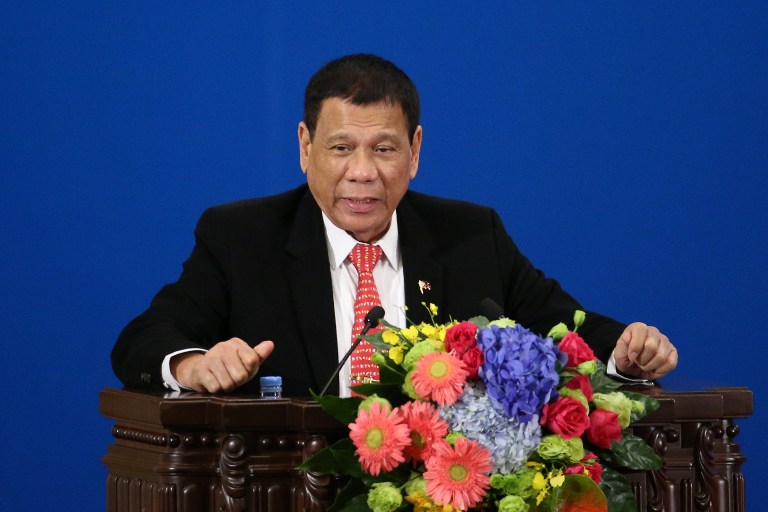
QUEZON City, Philippines (Eagle News) — In spite of his various controversial pronouncements, President Rodrigo Duterte still got the highest performance and trust ratings among the top five national government officials, according to latest Pulse Asia nationwide survey.
The President got an 86 percent approval rating, compared to Vice-President Leni Robredo who had a 66 percent approval rating.
Duterte also got the highest consistent “big trust” ratings across the country, and across all classes, based on the results of the survey conducted from September 25 to October 1, 2016. He had an overall trust rating of 86%, while Robredo got 65%.
The President consistently got the highest “big trust” scores from the National Capital Region (81%), Luzon (82%), Visayas (86%), and Mindanao (96%),
Robredo’s trust ratings were much lower: In NCR, she got only 55%; in Luzon, 65%; in Visayas, 66%; and Mindanao, 72%.
Duterte likewise still enjoyed the highest trust ratings among those surveyed among Classes ABC (85%), Class D (85%) and Class E (88%)
On the other hand, Robredo got a 60% trust rating among Classes ABC; 64% for Class D; and 72% for Class E.
Duterte’s 86% trust rating was, however, less than the 91% trust rating which he got on July 16, 2016, a couple of weeks after he was inaugurated as president.
The other national government officials who were included in the survey were Senate President Aquilino “Koko” Pimentel III (61% approval rating, and 55% trust rating); House Speaker Pantaleon Alvarez (43% approval rating, and 41% trust rating); and Supreme Court Chief Justice Maria Lourdes Sereno (46% approval rating, and 44% trust rating).
According to the report of Pulse Asia, citing its latest survey results, “trust is the majority sentiment toward President Duterte (81% to 96% and 85% to 88%, respectively), Vice-President Robredo (55% to 72% and 60% to 72%, respectively), and Senate President Pimentel (51% to 62% and 54% to 62%, respectively).”
“As for House Speaker Alvarez and Supreme Court Chief Justice Sereno, their only majority trust scores are granted by Mindanaoans (59% to 53%, respectively). Additionally, House Speaker Alvarez receives almost the same trust and indecision scores in the Visayas (32% versus 42%) and each socio-economic class (39% to 42% versus 42% to 46%),” the Pulse Asia report said.
According to Pulse Asia, among the issues that hounded the headlines during the survey period are the following:
a) the initial testimony of confessed hired assassin Edgar Matobato who linked President Duterte to alleged extrajudicial killings; the President’s statement that he does not know Matobato personally;
b) the concern expressed by various international bodies, including the United Nations, and other foreign leaders on the increasing number of drug-related deaths in the country;
c) the apology issued by President Duterte on his remarks concerning the Holocaust and Hitler to the Jewish community;
d) the removal of Senator Leila de Lima as chairman of the senate committee on justice and human rights;
e) and the initial investigation at the House of Representatives on the proliferation of drug syndicates and illegal drugs at the national penitentiary, among others.
As in the previous Ulat ng Bayan surveys of Pulse Asia, this nationwide survey is based on a sample of 1,200 representative adults 18 years old and above. It has a ± 3% error margin at the 95% confidence level. (Eagle News Service)







